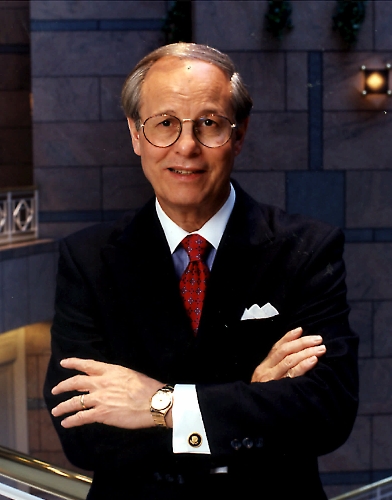Lobbyists call on Congress to legalize Internet poker

The American Gaming Association made its strongest call to date for Congress to legalize Internet poker, saying Tuesday that regulations are needed to protect U.S. consumers from illegal online gambling operators.
“There are no longer any good reasons to put U.S. citizens at risk by continuing to outlaw online poker in the U.S.,” American Gaming Association President Frank Fahrenkopf Jr., said in a statement released by the Washington, D.C.-based lobbying organization.
Association officials introduced an online poker Code of Conduct, outlining the measures they say are necessary to institute an effective regulatory system that will protect U.S. consumers, keep minors from gambling, provide tools to help problem gamblers and create provisions to help law enforcement identify and prosecute illegal operators.
The group also posted a video on YouTube, describing how Internet poker is operating in an unregulated environment that could be dangerous to players.
In an interview, Fahrenkopf said the association has taken an neutral stance on two bills in Congress that address legalizing poker online. However, Tuesday’s statement marks the first time the group has openly backed legalization of Internet poker, beyond pushing for a study of the activity.
“We believe that this is the time to get this done,” Fahrenkopf said. “It’s all about educating members of Congress about not only Internet poker, but poker in gaming in general.”
Congressional Quarterly reported Monday that Fahrenkopf has been making rounds on Capitol Hill to argue that permitting online poker would produce additional tax revenue and 10,000 to 15,000 private and public sector jobs.
Fahrenkopf, a former Republican National Committee chairman, reportedly wants Senate Majority Leader Harry Reid to add legalization of online poker to the job creation package proposed by President Barack Obama.
Supporters of Internet poker have speculated the activity could become part of the discussion over revenue-generating legalization that might be embraced by members of the Joint Select Deficit Reduction Committee.
In April, the U.S. Justice Department took steps to shut down illegal offshore online gambling sites when indictments charged the operators of PokerStars, Absolute Poker and FullTilt Poker with money laundering and bank fraud.
However, millions of Americans continue to play online poker every day.
“Online poker operators must adhere to the same stringent regulations that have proven effective in governing brick-and-mortar casinos,” Fahrenkopf said. “If online poker is legalized in the U.S., implementation of the principles of the Code of Conduct will ensure that American consumers are playing online poker in a fair and secure environment provided by a responsible operator.”
The association said federal guidelines would allow states to license and regulate online poker, protect U.S. consumers and ensure the industry creates U.S. jobs and revenues.
Contact reporter Howard Stutz at hstutz@reviewjournal.
com or 702-477-3871. Follow @howardstutz on Twitter.












